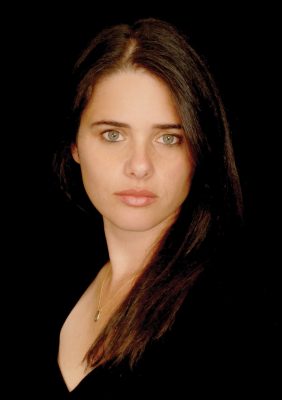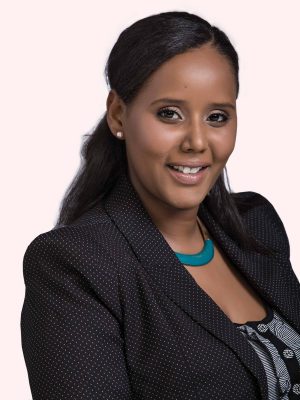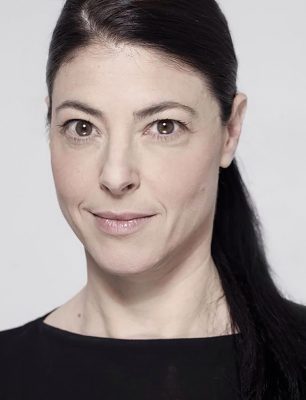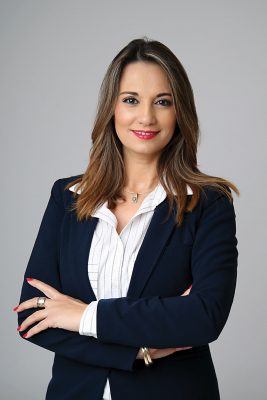
by: Janet Aslin, BFP Staff writer
The coalition formed by Prime Minister Naftali Bennett and Foreign Minister Yair Lapid is notable for its diversity. It can also claim the distinction of having the most female cabinet ministers in the history of the modern State of Israel. These nine women make up one-third of the 27 cabinet positions, with three of them sitting on the powerful Security Cabinet. Here we will look at four “women of the coalition.”
 Interior Minister
Interior MinisterPerhaps the most well-known of the four ministers, Ayelet Shaked currently serves as the interior minister, but will move to the position of justice minister in 2023. Born and raised in Tel Aviv, Shaked began her professional career as a software engineer, later moving to the political realm. She has worked closely with many Israeli leaders, including Prime Minister Naftali Bennett and former Prime Minister Benjamin Netanyahu.
Although she identifies as secular, Shaked has been a member of Yamina, which is an alliance of right to far-right, primarily religious Zionist parties. In 2019, Shaked authored a list of principles Yamina is determined to uphold. Topping the list were these words, “We will work to strengthen the Jewish identity of the State of Israel, and to strengthen the connection of Israeli students to the Torah [Gen.–Deut.], the Land of Israel, and the Jewish religious heritage.”
As Interior Minister, Shaked heads the government ministry responsible for citizenship and residency as well as student and other entry visas. The ministry faces the challenge of determining the Jewishness of those who are applying to immigrate and become citizens. Prior to her current ministerial appointment, Shaked served as the Justice Minister from 2015 to 2019.
Shaked is a strong, nationalistic advocate for the State of Israel and recently was named on the Jerusalem Post’s list of the Top 50 Influential Jews of 2021. Just 45 years of age, Shaked is a female Israeli politician and leader to watch in the years to come.
 Pnina Tamano-Shata was born in Ethiopia and came to Israel at the age of three in 1984’s Operation Moses airlift. An immigrant herself, she is uniquely suited to head the government’s ministry responsible for aliyah (immigration to Israel) and klita (absorption into Israeli society).
Pnina Tamano-Shata was born in Ethiopia and came to Israel at the age of three in 1984’s Operation Moses airlift. An immigrant herself, she is uniquely suited to head the government’s ministry responsible for aliyah (immigration to Israel) and klita (absorption into Israeli society).
Originally appointed to the position after the March 2020 election, the 40-year-old was reappointed in June 2021. A member of the centrist Blue and White party, in 2013 she was the first Ethiopian-born woman to become a member of Knesset (Parliament) and is the first Ethiopian-born cabinet minister.
Tamano-Shata kept the doors open for new immigrants during 2020, facing and solving COVID-related challenges, such as lockdowns and the closure of Israel’s Ben Gurion Airport to flights. Since her teens, she has been an activist for immigrants—both in her hometown of Petah Tikvah, at university and then later as a TV reporter.
Tamano-Shata’s life has prepared her for this ministerial role as her firsthand experiences have shaped her passion for aliyah and the return of all Jews to the Land of Israel.

Merav Michaeli, who has led the center-left Labor party since January 2021, became head of the important Transportation Ministry on June 14. Prior to becoming a member of Knesset in 2012, she worked in the communications field as a radio broadcaster, TV anchor and journalist.
Michaeli is a highly visible MK (member of Knesset) who regularly appears near the top of lists noting attendance and voting record. Her interests cover a wide range of issues, and during her tenure in Knesset, she has drafted over 100 laws focused on social rights, women’s rights, employee rights and separation of religion and state.
As transportation minister, she was often in the news this summer, as Israel struggled to control the Delta variant of COVID-19, which had entered through Ben Gurion Airport, one of her responsibilities. Along with Health Minister Nitzan Horowitz, Michaeli sought to establish regulations that would protect the nation during the crisis.
Throughout her life, Michaeli has been a leader, a consummate communicator and an advocate for women and others in society who are powerless. Since she is only 55 years old, we can expect to hear more from her in the coming years.

Born to immigrant parents in Kiryat Shmona, 48-year-old Yifat Sasha-Biton was appointed as education minister on June 13, 2021. Well-suited to the position, she holds a doctorate in education from the University of Haifa and has worked extensively in that field.
First elected to the Knesset in 2015, Sasha-Biton was relatively unknown until her appointment as Knesset Coronavirus chairwoman in May of 2020. She quickly drew public admiration when she opposed the Health Ministry’s recommendation that gyms and outdoor pools be closed, stating that the data they provided did not support their conclusion.
As the newly appointed education minister, Sasha-Biton was faced with this summer’s rapidly rising coronavirus infections and the need to decide whether to reopen schools “in person” or continue studies via remote learning. She came out strongly in favor of on-site learning, telling Arutz Sheva: “I know some parents also have concerns and I also know it will not be easy, but we have a moral obligation to return students to stability. We have a plan that has been formulated with the Ministry of Health, and we will not hesitate to change and adapt it to an evolving reality.”
A member of the New Hope Party, whose ideology is center-right to right, with a strong emphasis on nationalistic Zionism, Sasha-Biton is an up-and-coming politician who was named on Joel Rosenberg’s list of the top 21 Israelis to watch in 2021.
Two additional ministers are worthy of note. Economy Minister Orna Barbivai is a career soldier who became the first female major–general in the Israel Defense Forces. And Energy Minister Karine Elharrar, who suffers from muscular dystrophy, is the first cabinet minister with a disability. In conclusion, each of the nine women is an exceptional role model who brings her unique experiences and abilities to her leadership position.
Photo Credit: "Click on the photo for photo credit"
All logos and trademarks in this site are property of their respective owner. All other materials are property of Bridges for Peace. Copyright © 2025.
Website Site Design by J-Town Internet Services Ltd. - Based in Jerusalem and Serving the World.